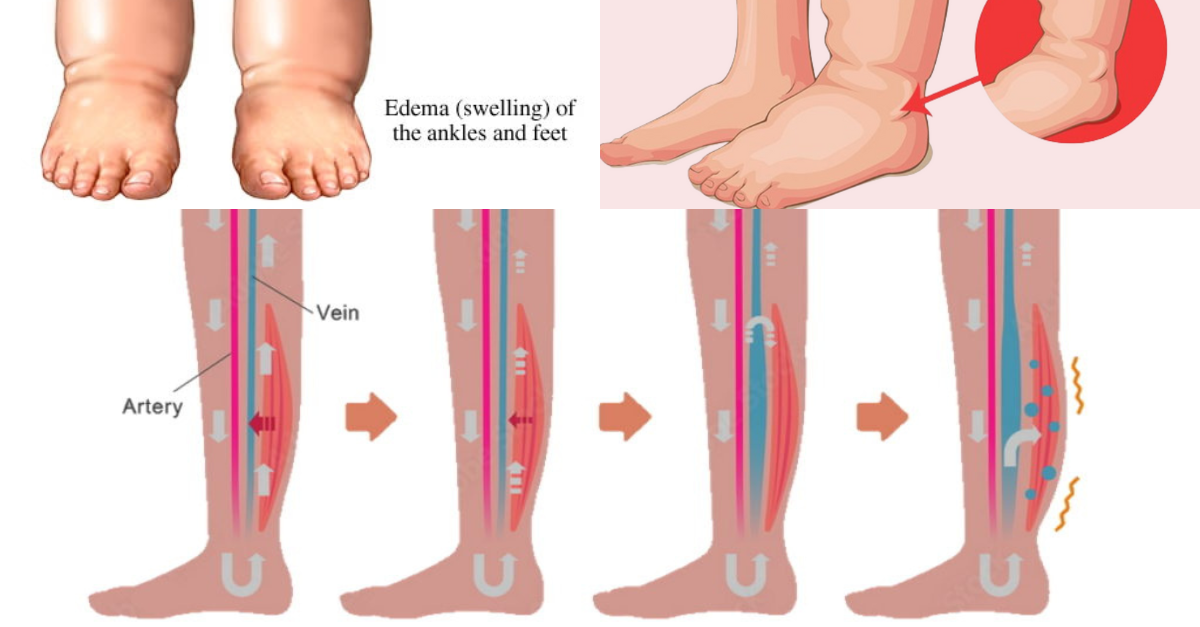Water retention, or edema, occurs when excess fluid builds up in the body’s tissues, circulatory system, or cavities, leading to swelling, particularly in the hands, feet, and legs.
Common causes of water retention include premenstrual syndrome, lack of physical activity, a sedentary lifestyle, pregnancy, and certain medications. It can also occur after long flights. While edema is usually harmless, it can sometimes signal more serious health issues, such as kidney disease or heart failure. Therefore, it’s important to address water retention promptly.
Here are some common causes of water retention and how you can manage it:
1. Excessive Consumption of Processed Foods
Processed foods are often loaded with high amounts of sodium and sugar, making them a primary culprit for edema. Additionally, these foods typically contain artificial additives, which can strain the liver and kidneys. Consuming too much sugar can also cause spikes in insulin and elevated blood sugar levels, worsening fluid retention.
2. High Sodium Intake
Eating foods high in sodium without drinking enough water can force your body to retain fluid, leading to swelling. Sodium is found in processed meats, canned vegetables, and many condiments. To reduce water retention, switch to healthier alternatives like Celtic or Himalayan sea salt instead of regular table salt.
3. Dehydration
Not drinking enough water can trigger your body to hold onto fluid in an effort to stay hydrated, leading to bloating and swelling. To avoid this, drink plenty of water and cut back on dehydrating beverages like coffee and soda.
4. Vitamin B6 Deficiency
A lack of vitamin B6 can also cause water retention. A study published in the Journal of Caring Sciences found that women suffering from water retention due to premenstrual syndrome saw significant improvement when they increased their intake of vitamin B6. Since it is water-soluble, it’s best to consume it through whole foods such as tuna, sunflower seeds, pistachios, potatoes (with skin), dried fruits, chicken, lean beef, turkey, and bananas.
5. Magnesium Deficiency
Magnesium, an essential mineral for many bodily functions, is often linked to edema when there’s a deficiency. Research suggests that consuming 200 milligrams of magnesium daily can help reduce water retention in women with premenstrual symptoms. Magnesium-rich foods include nuts, whole grains, peas, spinach, dark leafy vegetables, dark chocolate, and avocados.
Read more: 22 Warning Signs Your Body Needs Magnesium – And How to Fix It Fast!
6. Potassium Deficiency
Potassium is critical for the proper functioning of cells, tissues, and organs, as well as maintaining fluid balance. If your diet is high in sodium and low in potassium, you may experience water retention. Potassium helps regulate sodium levels in the body, and consuming foods like melons (rockmelon, watermelon, and honeydew) can help reduce fluid buildup.
Natural Diuretic Remedies
Several plants and herbs have natural diuretic properties, which can help to alleviate water retention. These include:
- Garlic
- Nettle
- Hibiscus
- Horsetail
- Dandelion
- Parsley
- Fennel
- Corn silk
Incorporating these natural diuretics into your diet can support fluid balance and prevent the buildup of excess water in the body.
See also: How Fasting for 72 Hours Can Reset Your Immune System




